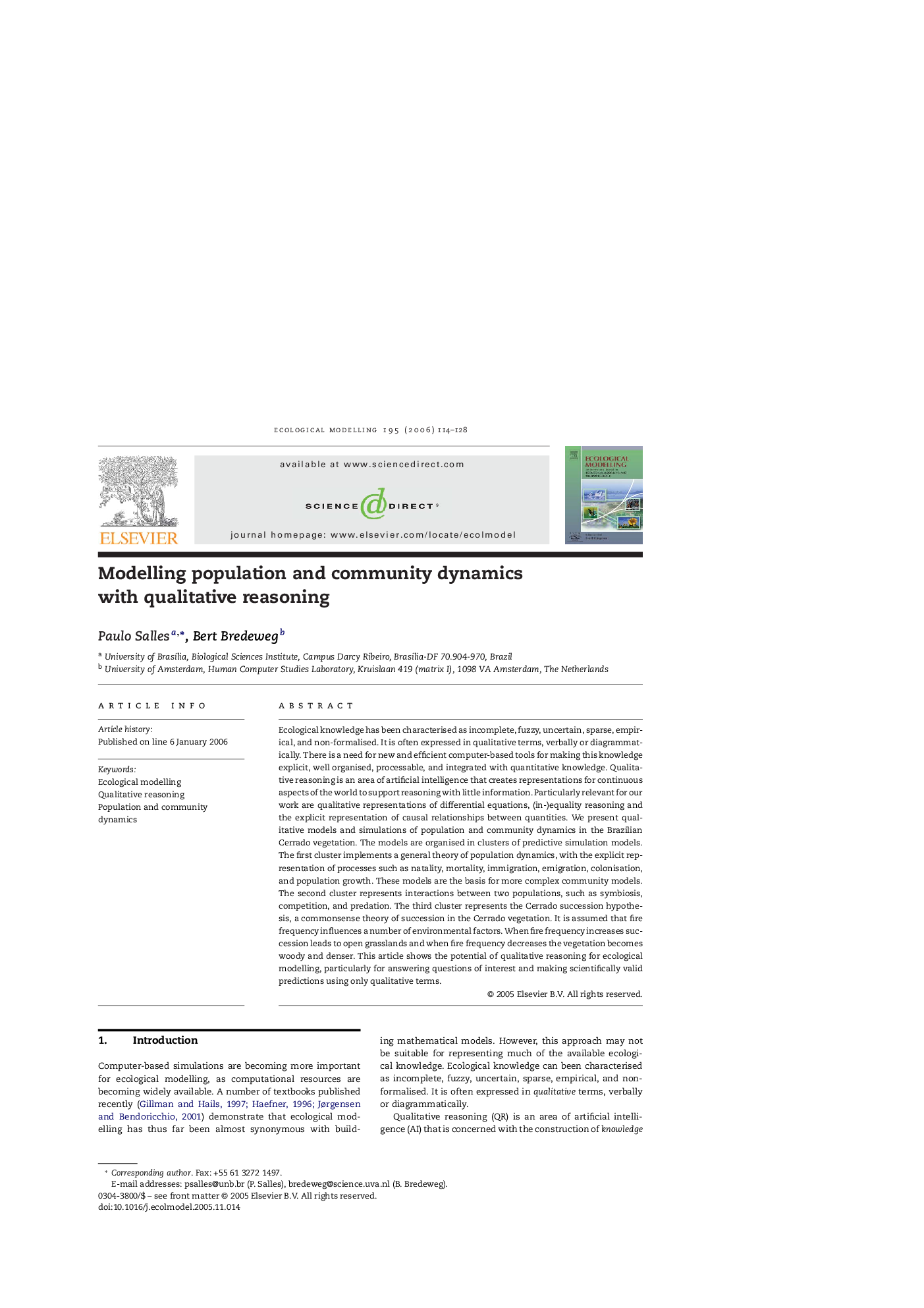| Article ID | Journal | Published Year | Pages | File Type |
|---|---|---|---|---|
| 4379096 | Ecological Modelling | 2006 | 15 Pages |
Ecological knowledge has been characterised as incomplete, fuzzy, uncertain, sparse, empirical, and non-formalised. It is often expressed in qualitative terms, verbally or diagrammatically. There is a need for new and efficient computer-based tools for making this knowledge explicit, well organised, processable, and integrated with quantitative knowledge. Qualitative reasoning is an area of artificial intelligence that creates representations for continuous aspects of the world to support reasoning with little information. Particularly relevant for our work are qualitative representations of differential equations, (in-)equality reasoning and the explicit representation of causal relationships between quantities. We present qualitative models and simulations of population and community dynamics in the Brazilian Cerrado vegetation. The models are organised in clusters of predictive simulation models. The first cluster implements a general theory of population dynamics, with the explicit representation of processes such as natality, mortality, immigration, emigration, colonisation, and population growth. These models are the basis for more complex community models. The second cluster represents interactions between two populations, such as symbiosis, competition, and predation. The third cluster represents the Cerrado succession hypothesis, a commonsense theory of succession in the Cerrado vegetation. It is assumed that fire frequency influences a number of environmental factors. When fire frequency increases succession leads to open grasslands and when fire frequency decreases the vegetation becomes woody and denser. This article shows the potential of qualitative reasoning for ecological modelling, particularly for answering questions of interest and making scientifically valid predictions using only qualitative terms.
